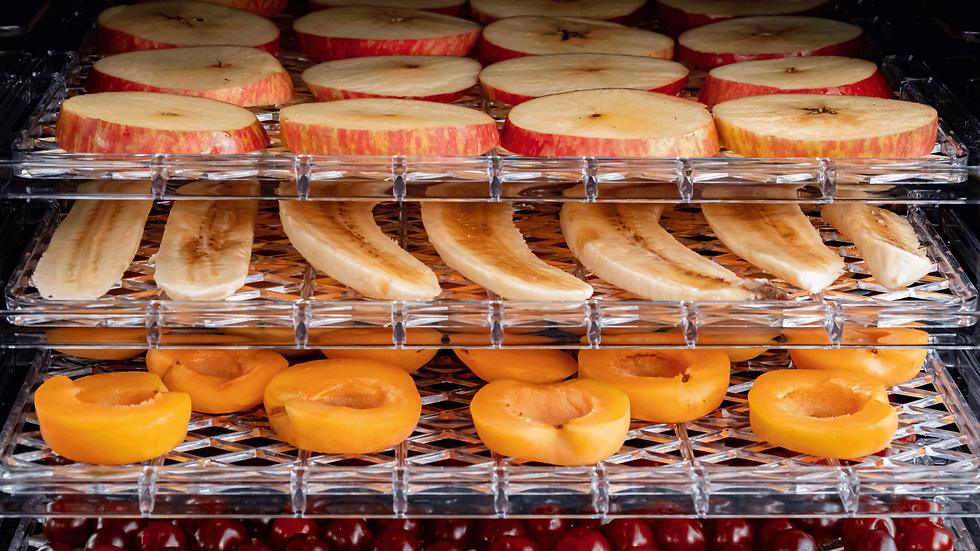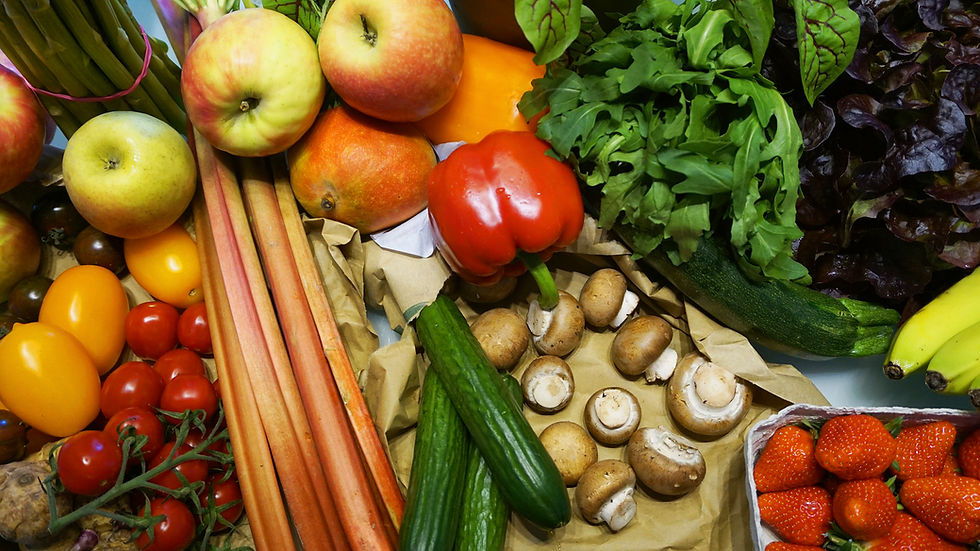Dehydrated vs. Fresh/Frozen Vegetables: Choosing the Best Option for You
- Ellie Chen
- Apr 2, 2024
- 3 min read
Key Differences between Dehydrated and Fresh/Frozen Vegetables
With so many vegetable options available, choosing the right one can be confusing. While fresh and frozen vegetables have been around for a while, dehydrated vegetables are gaining popularity due to their convenience and long shelf life. This article explores the key differences between dehydrated, fresh, and frozen vegetables to help you make informed decisions based on your needs.


Nutrient Content
Dehydration can cause some nutrient loss, but dehydrated vegetables still hold significant vitamins, minerals, and fiber. However, the exact content can vary depending on the dehydration process and storage conditions. Fresh produce offers the most nutrients at harvest, but these levels decline over time. Flash-frozen vegetables retain most nutrients as they're frozen right after picking.
Shelf Life and Storage
Dehydrated vegetables reign supreme in terms of shelf life. Dehydration removes moisture, a primary spoilage factor, allowing them to last for months or even years without refrigeration. This makes them ideal for long-term storage and emergencies. Fresh vegetables have a shorter shelf life and need refrigeration. Frozen vegetables last longer than fresh but still require freezing to prevent spoilage.

Convenience and Availability
Dehydrated vegetables are incredibly convenient and accessible, especially in areas with limited fresh produce or during off-seasons. They're lightweight, compact, and portable, making them perfect for camping, hiking, or traveling. They require minimal prep by rehydrating in water or adding them directly to recipes. Fresh vegetables may not always be readily available and might require frequent grocery store trips.
Flavor and Texture
Dehydrated vegetables often have a more concentrated flavor due to moisture removal, which can enhance certain dishes. However, some might find their rehydrated texture softer or chewier than fresh. Dehydration can also affect color and appearance. Fresh vegetables offer a crisp, vibrant texture ideal for salads or raw dishes.
Cooking and Preparation
Dehydrated vegetables shine for quick and easy meals. They require minimal chopping and can be added directly to recipes without thawing. They're versatile, fitting well in soups, stews, casseroles, and stir-fries. Rehydrating them can take some time, and they might not have the same texture as fresh. Fresh and frozen vegetables offer a crisp, juicy texture, but they may require more prep and careful storage to avoid spoilage.


Cost Comparison
Dehydrated vegetables may seem pricier upfront due to processing and packaging. However, their extended shelf life and reduced spoilage risk can offer better value in the long run. They can also be purchased in bulk, lowering the cost per serving. Fresh vegetables can be expensive, especially out of season or imported. Frozen vegetables typically find a middle ground, offering convenience at a moderate price.
Environmental Impact
Dehydrated vegetables often have a lower carbon footprint than fresh or frozen options due to less energy needed for transportation and storage. They also reduce food waste by extending the shelf life of produce. However, processing and packaging dehydrated vegetables can contribute to pollution depending on the methods used. Locally and sustainably sourced fresh and frozen vegetables might have a lower impact.

The Final Choice
Ultimately, the best option depends on your priorities. Dehydrated vegetables offer convenience, long shelf life, and good nutrition. Fresh and frozen vegetables provide crispness, juiciness, and vibrant flavors. Consider your preferences, lifestyle, and culinary needs to make an informed decision. Whether you choose dehydrated vegetables for their practicality or prefer the freshness of farm-to-table produce, there's a delicious and nutritious vegetable option for everyone.
FAQ:
Are dehydrated vegetables as nutritious as fresh ones? Dehydrated vegetables can retain a significant portion of their nutrients, but some loss may occur during the dehydration process. However, they still offer essential vitamins and minerals.
How do I rehydrate dehydrated vegetables? To rehydrate dehydrated vegetables, simply soak them in water for a period of time until they regain their original texture. Alternatively, you can add them directly to soups or stews during cooking.
Can I dehydrate vegetables without a dehydrator machine? Yes, vegetables can be dehydrated using alternative methods such as oven drying or sun drying. However, these methods may take longer and require careful monitoring.
What is the best way to store dehydrated vegetables? Dehydrated vegetables should be stored in airtight containers in a cool, dry place away from sunlight. Properly stored, they can last for extended periods without losing quality.
Are there any vegetables that are not suitable for dehydration? While most vegetables can be dehydrated successfully, some may not yield desirable results due to their high water content or delicate texture. It's best to research specific vegetables before attempting dehydration.




Comments